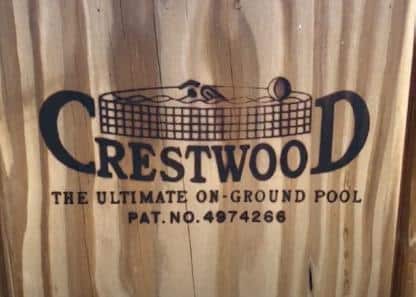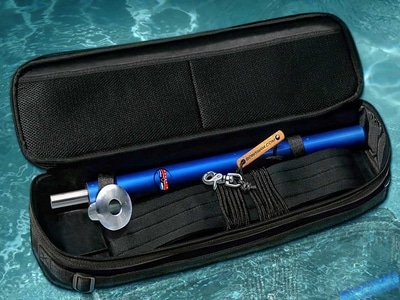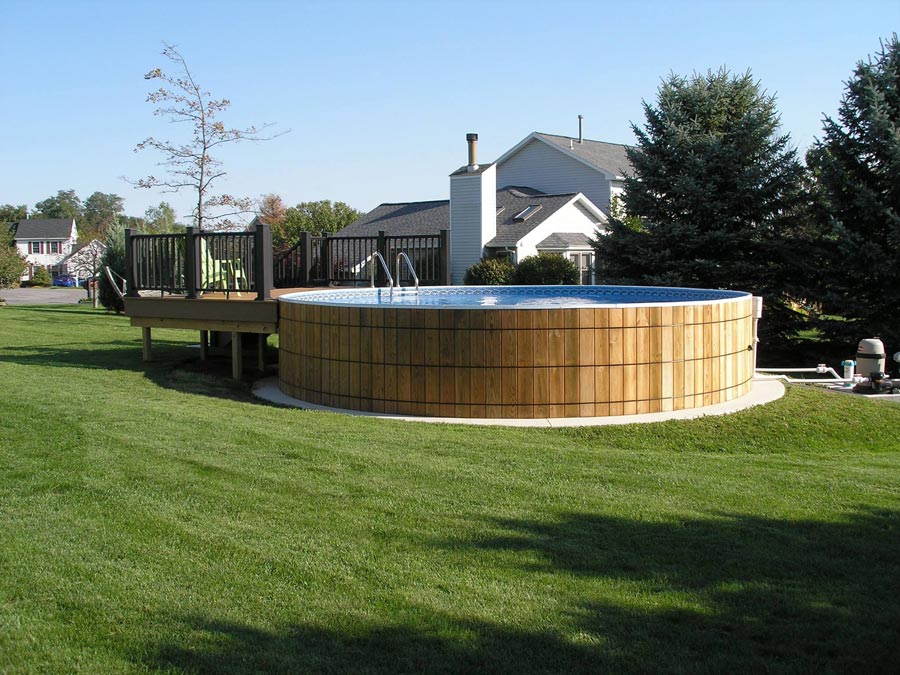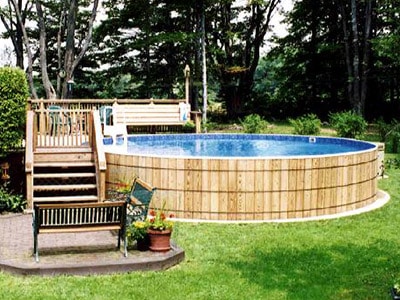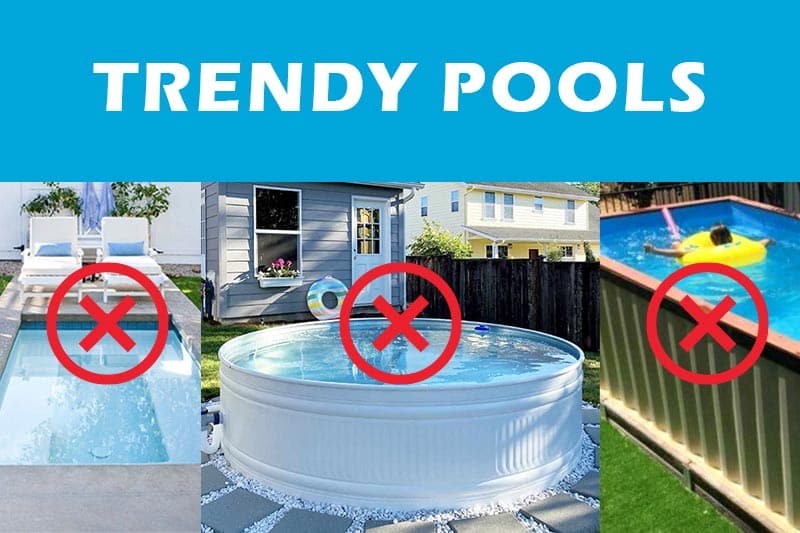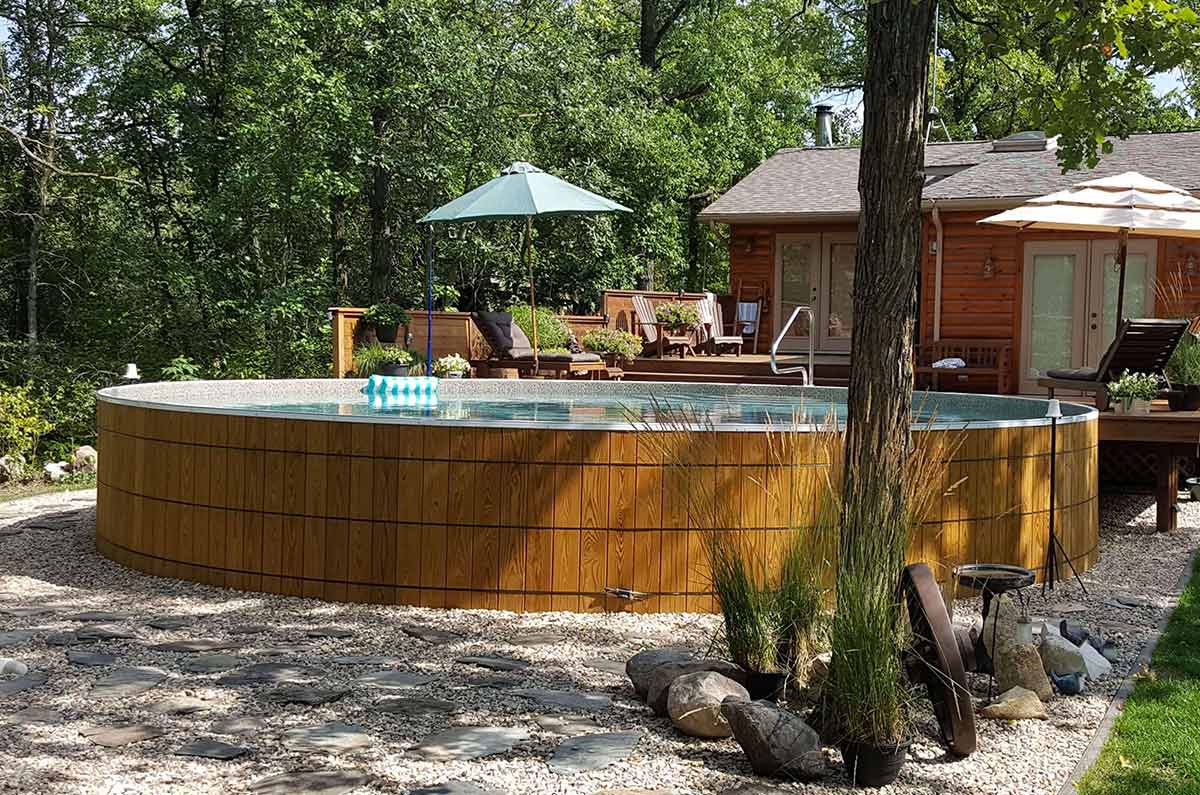Did you know that an in-ground swimming pool is about 3.5 times more expensive than an above-ground swimming pool?
Imagine sipping your favorite cocktail, the warm sun kissing your skin as you lounge by the pool, enjoying the refreshing embrace of crystal-clear water.
For many homeowners, this idyllic scene is synonymous with the investment in an inground pool. But there’s a game-changing alternative that’s been making waves: wooden above-ground pools.
These pools combine aesthetic appeal, cost-effectiveness, and versatility. This is why they are redefining the poolside experience. They also prove to be a more attractive investment than their inground counterparts.
To help you understand the hidden costs related to inground pools and why wooden above-ground pools are a better option, we have written a guide. Keep reading to find out more.
Download Now: 10 Most Important Things to Know Before Buying a Pool
Why Wooden Above-Ground Pools Are a Better Investment
Wooden above-ground pools have gained popularity in recent years as an alternative to inground swimming pools. They offer numerous advantages that make them a more attractive investment for homeowners.
One of the primary reasons for this shift in preference is the flexibility and ease of installation that wooden above-ground pools provide.
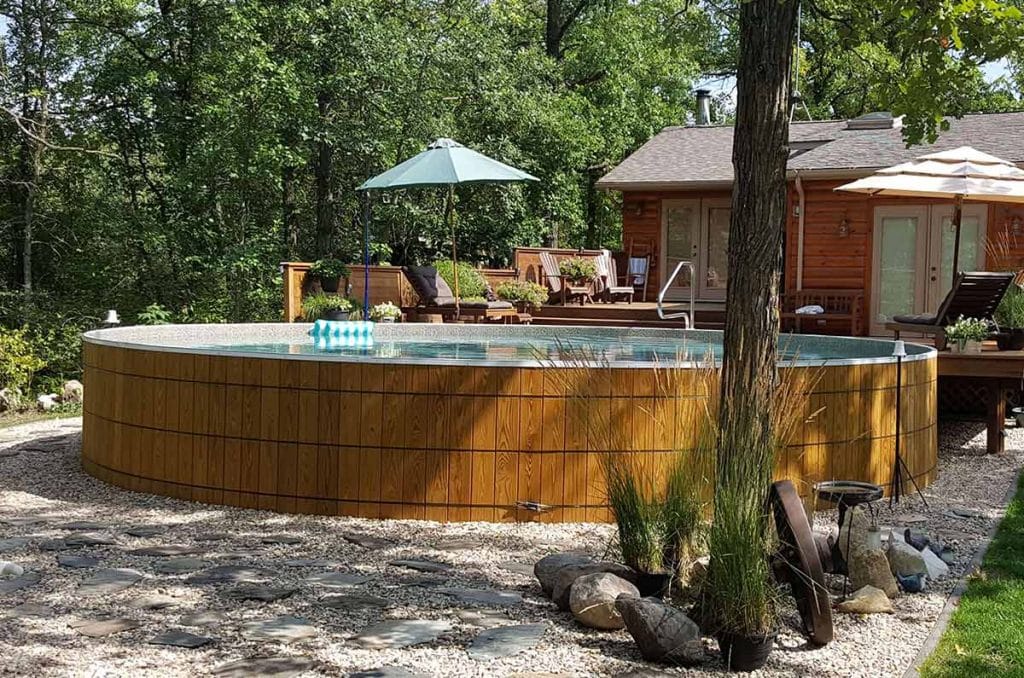
Portability
Unlike inground pools, which are permanent installations, you can disassemble and transport wooden above-ground pools to a new location when you move.
This portability means that the pool owner can retain their investment and continue to enjoy the benefits of their pool at their new residence.
Alternatively, if you choose not to take the pool with you, you can easily sell it to a new owner. This means that you will recoup some of the initial costs.
Initial Costs
Inground pools typically require a considerable financial investment for excavation, construction, and landscaping. This can be prohibitive for many homeowners.
In contrast, wooden above-ground pools are more affordable. This is because they do not necessitate extensive groundwork or costly construction materials.
This lower initial cost makes owning a swimming pool a more accessible option for families with varying budgets.
Smaller and More Convenient
Wooden above-ground pools have a smaller footprint than inground pools. They make it easy for homeowners to maximize their outdoor space.
Inground pools can consume a significant portion of a yard due to concrete decking, varying nonsymmetric pool shapes, and fencing . This limits the available space for other activities or landscaping features.
Conversely, above-ground pools can be installed in a smaller area, preserving valuable outdoor space for gardening, play areas, or other amenities.
Easy and Fast Installation
Wooden above-ground pools have become an increasingly popular choice for homeowners. This is especially true for those who are seeking a cost-effective and convenient swimming pool solution.
One of the primary advantages of choosing a wooden above-ground pool over an in-ground pool is the ease and speed of installation. In-ground pools are difficult to install.
They often require extensive excavation, construction, and time-consuming permitting processes. On the other hand, wooden above-ground pools can be assembled in one day and with minimal disruption to the property.
Moreover, the cost of installing an in-ground pool can be significantly higher than that of a wooden above-ground pool. In-ground pools often necessitate additional expenses.
This can further drive up the overall investment. In contrast, wooden above-ground pools present a more budget-friendly option. It isn’t necessary to sacrifice quality or aesthetics.
Increased Safety
The elevated sides of the wooden above ground pool create a natural barrier that can deter unsupervised children or pets from entering the water.
This added safety feature can provide peace of mind for homeowners, especially those with young children.
Additionally, many above-ground pools can be easily fitted with removable ladders or locking gates. This further enhances their safety profile.
More Aesthetically Appealing
Wooden pools can be designed in various shapes and sizes. The wood itself adds a natural, attractive appearance. It will blend seamlessly with many outdoor environments.
Furthermore, the wood can be stained or painted to match the homeowner’s personal preferences or existing outdoor décor. This ensures that the pool enhances the overall aesthetic of the property.
Not only will you be more likely to enjoy the aesthetics of a wooden above-ground pool. You should also keep in mind that these types of pools never go out of style.
Therefore, if you ever choose to sell your wooden above-ground pool, you will have peace of mind in knowing that it will have a high resale value.
Inground Pool Heating and Utility Costs
Heating costs are a significant factor to consider when choosing between inground and wooden above-ground pools. Generally, inground pools are more expensive TO HEAT.
The main reason for this is that the wooden structure of wooden above-ground pools acts as a natural insulator.
This helps to retain heat within the pool. This is in contrast to inground pools, which can lose heat to the surrounding ground. There are several reasons why this tends to happen.
First, inground pools are usually made from materials such as concrete, which loses heat rapidly.
Second, inground pools will also lose heat more quickly because they are surrounded by cold soil. This is especially true for those who live in the Northern parts of the country. The longer your family wants to swim, the higher the heating costs.
If you live in a colder environment, you might need to use a pool heater to maintain a comfortable pool temperature.
It will cost you much more to use this heater if you choose to install an inground pool instead of an above-ground pool.
Therefore, if you are looking for an economical choice when it comes to swimming pools, wooden above-ground pools are a more economical choice.
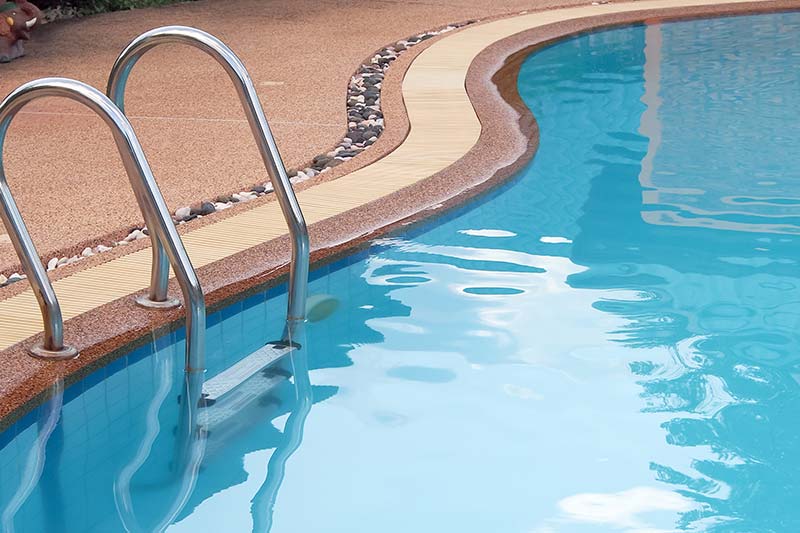
Insurance Costs and Local Regulations
Above-ground pools often make more sense to buy due to local CODE regulations and insurance premiums. Many municipalities have strict rules about in-ground pool installation.
They tend to require costly permits and inspections that can delay your swimming plans. On the other hand, above-ground pools usually face fewer regulatory hurdles.
This simplifies and expedites the installation process. In terms of insurance, in-ground pools are often considered permanent structures. This leads to increased home insurance premiums.
Above-ground pools, however, are typically classified as personal property, often resulting in lower insurance costs.
Thus, buying an above-ground pool can mean fewer regulatory hassles and more manageable insurance expenses.
Dirt Hauling During Construction
Dirt hauling is another often-overlooked cost associated with inground pool installation. The excavation process generates a significant amount of dirt and debris, which must be removed from the property.
Depending on the pool’s size and depth, as well as local disposal fees, the cost of dirt hauling can be substantial. Expect to pay between four hundred and eight hundred dollars per truckload.
The Cost of Fencing
Fencing is often a necessary expense for inground pool owners. Many people don’t realize how common it is for municipalities to require pool owners to install a fence around the pool area.
The cost of fencing can vary depending on the materials used and the size of the area to be enclosed. Additionally, gates and locks must be considered when budgeting for fencing expenses.
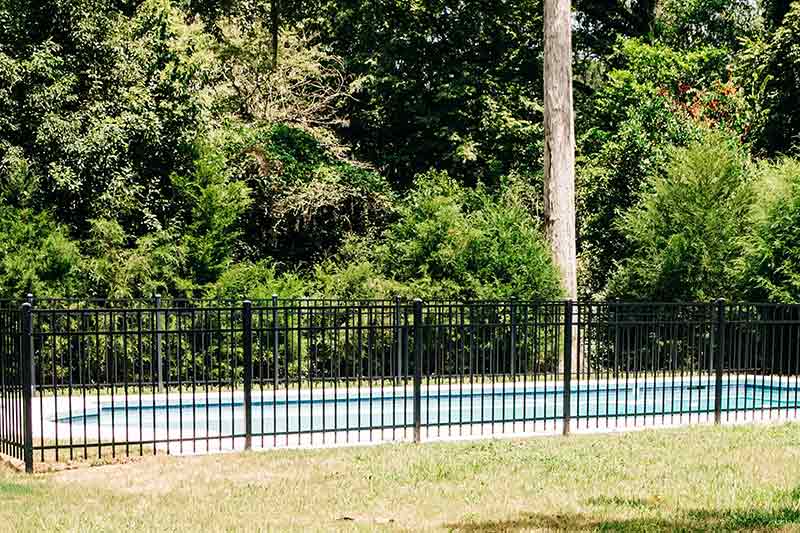
Safety Features
In addition to fencing and handrails, pool owners may need to invest in alarms, pool covers with safety latches, or other devices to ensure the pool area is secure.
These safety features not only protect against accidents. They can also help lower insurance premiums by demonstrating proactive risk management.
The Initial Cost of Inground Swimming Pools
If you have been asking the question “how much do inground pools cost?”, keep in mind that the cost of installing an inground swimming pool can vary greatly.
The cost will depend on factors such as size, materials, location, and additional features. On average, inground pools cost between $39,000 and $80,000, with higher-end pools reaching over $100,000.
The price range for inground pools can differ based on factors like the choice of a vinyl, fiberglass, or concrete pool. Vinyl pools typically cost between $35,000 and $55,000.
And fiberglass pools range from $30,000 to $69,000. Concrete pools, on the other hand, can cost anywhere from $35,000 to $65,000 or more.
It is important to consider that these figures are just for the basic installation and that there are many types of inground pools. This is why it can be so confusing when you are trying to figure out how much are inground pools.
The materials used for constructing inground pools significantly contribute to their initial and long-term costs.
Each of these materials has its own set of advantages and disadvantages, as well as varying degrees of durability and maintenance requirements.
The Hidden Costs of Inground Pools
Inground pools have numerous hidden costs that can make their total price much higher than what one might initially expect.
One reason for this is the labor shortage related to the economy and the Covid pandemic. With a reduced workforce, the availability of professionals to build inground pools has been impacted.
This has led to wait times of one to three years for installation. This delay can increase costs due to the inflation of materials and labor during the waiting period.
Another factor contributing to the high cost of inground pools is their impact on property value. When homeowners decide to move, they often find that they cannot take their pool investment with them.
As a result, they may not recover the full value of the pool. This is because its presence might not increase the property’s value by an equivalent amount.
In fact, some buyers may be deterred by the presence of a pool. This makes it more challenging to sell the house.
If the buyer does not want a pool, the seller may need to pay for the expensive process of having the pool filled in and the area landscaped. This can further diminish the return on investment.
The Downsides of Inground Pools
If you are planning on installing a swimming pool, it is important to familiarize yourself with the hidden costs of inground pools. You should also understand why wooden above-ground pools are a better investment.
Not only are wooden above-ground pools portable, they also cost less to maintain and have lower initial costs. Lastly, they tend to be safer and are more aesthetically pleasing than typical metal wall or inflatable type pools.
Are you ready to purchase a high-quality wooden above-ground pool? If so, Crestwood can help you. We manufacture and sell the highest quality wooden pools that are built to our stringent standards to meet yours.
Don’t hesitate to visit our Wooden Swimming Pools page to find out more about the various pools that we offer to provide your family years of affordable pleasure and the best value in the industry!

